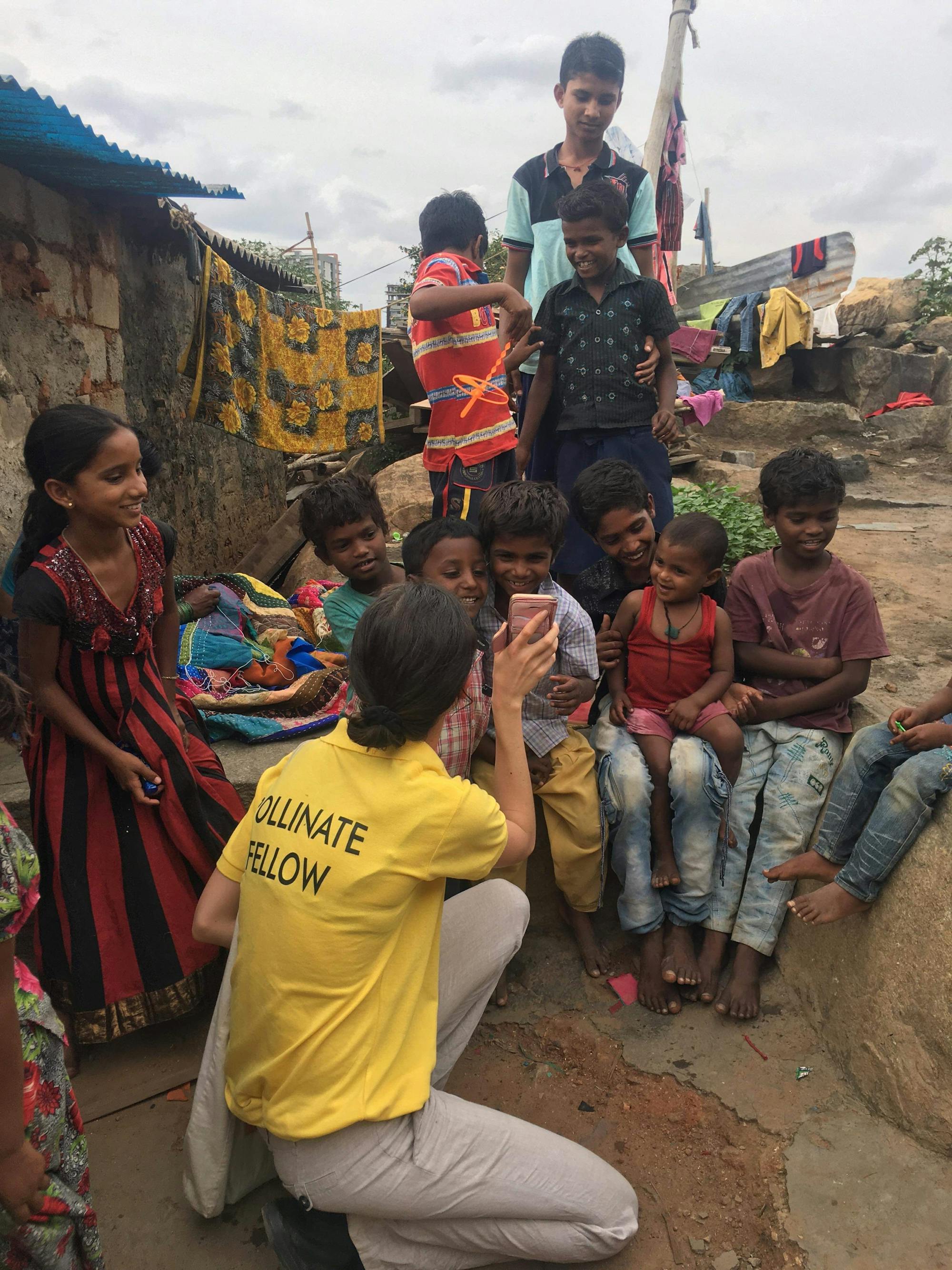There are some memories of the urban slums in Bangalore, India that will stay with University of WA commerce student Meisha Bull forever.
“In one tiny community, a mother made us chai while we talked about our education in Australia, and in another the young girls were learning our names and making an effort to speak English with us,” the 20-year-old Margaret River resident said.
Through the McCusker Centre for Citizenship at UWA, Ms Bull and fellow UWA student Natalie Fretton recently completed the Student Fellowship program run by Pollinate Group – an organisation that helps empower local Bangalore women out of poverty through social enterprise.
“The fellowship opened my eyes to a lot of global issues that I didn't fully grasp beforehand, and I also learnt a lot about myself, what drives me, and what I value,” Ms Bull said.
“It gave me a chance to use what I've learnt at university to give back to others who haven't had the same opportunities.”
Ms Fretton and Ms Bull – who coincidently lived together at St Catherine’s College during their first year of university – worked on the Poverty Index Study, a project that used surveys with the aim to quantify the ‘material poverty levels’ of individuals living in urban slum communities throughout Bangalore.
“We also focused on implementing meaningful survey methods for future Pollinate surveyors to use; to reduce the transactional nature of surveying and encourage meaningful conversation,” Ms Bull said.
“Our team found this to be really important, especially as the surveys included personal and sometimes intrusive questions.
“In the future, hopefully the data in our report will help Pollinate gain a better understanding of the determinants of poverty in Bangalore communities, and to better address the needs of those communities.”
Ms Bull, who grew up in Margaret River, said her most memorable experience came about one week into the three-week fellowship.
“The first few community visits before that had been a little awkward as we were finding our feet as a team and working on best surveying practices,” she admitted.
“On the Sunday, we had our first really engaging conversations with people instead of simply running through our survey, and I felt confident about what we were doing.
“In one community, young girls were learning our names and making an effort to speak English with us.”
Ms Bull said the program was “overwhelming and intense at times”.
“I had to be prepared for the challenges and frustrations that come from trying to work in a social business in India,” she said.
“Almost everybody we talked to had come from native land where they were growing food or cotton, and had moved to the city due to lack of rainfall.
“I didn't know that this was the case before I came to India, and it caused me to start challenging a lot of the preconceptions I had about people living in poverty; and also the determinants of poverty.”
The Pollinate Group Student Fellowship confirmed Ms Bull’s long-time aspirations to work in the social impact space.
“It made me even more grateful for the chances and opportunities I've been given growing up in Australia,” she said.

